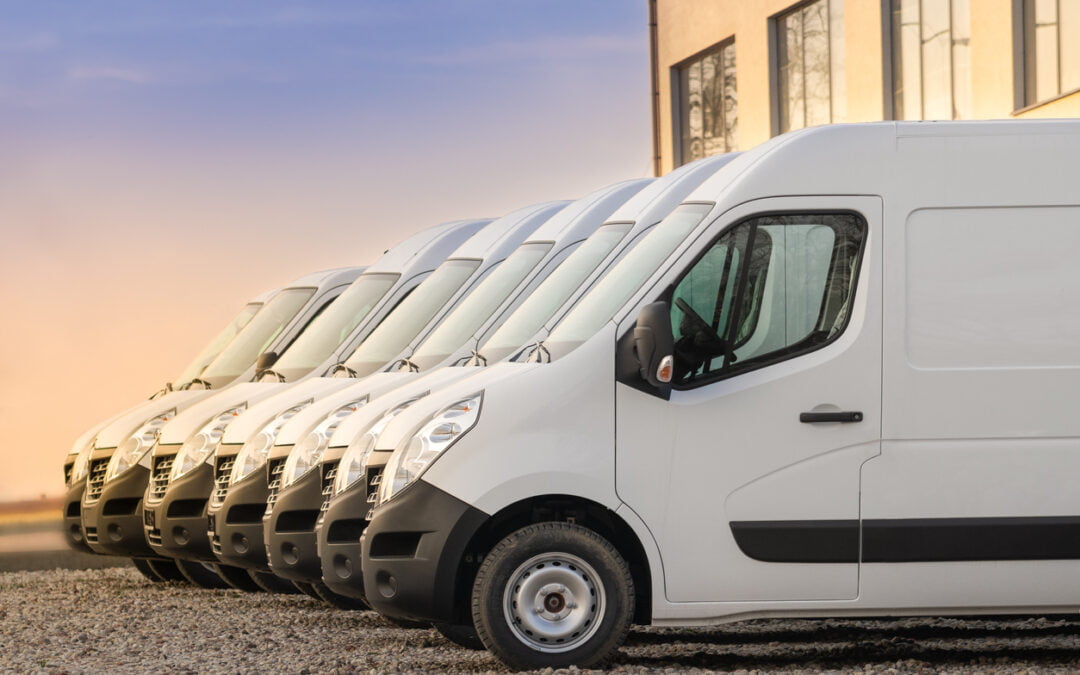There are businesses of all shapes and sizes operating in Ontario, many of which rely on mobility to continue growing their services. It’s an exciting time for entrepreneurs branching out on their own as a response to the current restrictions brought on by the pandemic. Whether it’s a family-run bakery beginning to offer delivery services, pop-up restaurants supplying delicious food to your door or maybe your products are experiencing a surge of interest online and your new team of salespeople need to move product outside of your city. Providing a company car is a big step forward in your business plan, but what type of insurance do you need? To better understand why Commercial Auto insurance is so important, we will examine what it is and how this particular coverage can help protect you and your business.
What is Commercial Auto insurance?
Commercial auto insurance, also called commercial vehicle or business auto insurance, is a business insurance policy that applies to “autos owned by or used in your business.” It protects your business against liability for damages caused by accidents involving your business vehicles and provides certain compensation to occupants of your business vehicles who are injured in said accidents. In Canada, any vehicle used to transport clients, materials, goods, tools or equipment generally requires commercial coverage. It’s important to know that a personal automobile insurance policy usually does not cover vehicles used in the operation of your business. You will need to apply for IRCA (Individually Rated Commercial Auto insurance).
IRCA-eligible vehicles are non-fleet automobiles used for commercial purposes rather than personal use. They are rated based on the driver’s driving record, claims history, coverage, limits and deductible.
How is Commercial Auto insurance useful?
Commercial auto insurance adds another layer of protection to your business. Vehicles are a vital part of operations, and an accident, stolen work vehicle or injury could put your business at risk. This type of insurance covers cars, trucks, pickups, vans, trailers and fleets used for work purposes. It protects your business, drivers and your vehicles from exposure to threats.
Who needs Commercial Auto insurance?
Essentially, there are three main criteria to consider to help you determine if you need commercial auto coverage:
- Use of the vehicle: If visiting clients on a daily basis is the core of your services offered or if you make deliveries, you should have a commercial auto insurance policy.
- Type of vehicle you drive: Large commercial vehicles often cause more damage in an accident and your coverage will likely reflect that.
- Vehicle owner: If your vehicle is owned by the business and used for business purposes, you should have commercial auto insurance coverage. Any employees who utilize the vehicle will also need to be covered under your policy.
There are a few services that need a commercial auto insurance policy, such as:
- Contractors and construction
- Maintenance people (if they are carrying tools)
- Personal emergency equipment (i.e. tow truck)
- Any delivery service (Restaurant, take-out delivery)
- Providing driver education
- Sales visits and calls
- Employee use, even if you only use it occasionally
- Taxi-style hire services (i.e.. Lyft or Uber)*
* If you use your personal vehicle as part of the Uber ride-sharing service in Quebec, Ontario or Alberta, you’re automatically covered by Intact Insurance from the moment you make yourself available to accept a ride request, to the moment you drop off the last passenger. This is regardless of which insurer your policy is with.
Did you know that commercial vehicles use black letters and numbers in their license plates in Ontario? A “Class” designation will appear on the plate in Alberta, whereas in Quebec, a licence plate that starts with an “F” indicates that it is being used for commercial purposes by a company or a self-employed individual.
Personal auto insurance vs. Commercial auto insurance
Both personal and commercial auto policies are essentially very similar – they provide you with protection against common threats. These policies offer financial protection and provide you with resources to recover if you file an insurance claim. How they differ is in the type of threats, plan limits and types of policies available. Personal auto insurance is geared towards individuals, while commercial auto policies are customized for all types of businesses and functions.
One thing they both have in common is that personal will not cover you when driving for business use and commercial will not cover personal-use driving.
It is important that your insurance company is aware that you are using your personal vehicle for business purposes. Should a collision occur, your claim will likely not be processed if you haven’t disclosed the usage of your private car to your insurance company. Cancellation of your policy altogether may occur as a result. However, if your business use covers your daily commute to work, you are covered.
Commercial auto insurance coverage
While types of insurance will vary by province, the primary coverages for provinces that do not have a government insurance plan (British Columbia, Manitoba, and Saskatchewan) are as follows:
1. Liability
This coverage protects you if someone else is killed, injured or their property is damaged from your company vehicle. This coverage will pay for claims as a result of lawsuits against you up to the limit of your coverage, and will pay the cost of settling the claims. By law, you must carry a minimum limit for Third-Party Liability coverage (varies by province), but options exist to increase the minimum amount.
2. Accident benefits
This coverage provides you (or other insured persons) with benefits if you are injured in an automobile accident, regardless of who is responsible for the accident. It covers things like rehabilitation treatment, income replacement and other services that are needed for recovery.
3. Loss or damage
This provides a selection of coverages for your automobile that covers you against direct and accidental loss of, or damage to, your automobile and its equipment.
There are four optional coverages:
- All Perils: Combines the Collision or Upset and Comprehensive coverages listed below.
- Collision/Upset: Covers damage when your vehicle is involved in a collision with another object or vehicle or happens to tip over.
- Specified Perils: Covers your vehicle against loss or damage caused by certain perils, including fire, theft/attempted theft, lightning, windstorm, hail/rising water or earthquake.
- Comprehensive: Covers your vehicle against loss or damage caused in addition to those covered by Specified Perils, as well as falling or flying objects, missiles or vandalism.
What are the three types of Commercial Auto insurance policies?
- Business use: For small business, a home-run business or for individual entrepreneurs. Used for driving to various locations and meeting with clients. You can add “business use” to your personal auto insurance.
- Business use for multiple drivers: This provides the option to add multiple drivers to your policy. Multiple employees can utilize your vehicle and the insurance is paid by the owner.
- Commercial auto use only: Vehicles used exclusively for work purposes. Daily use with added equipment and features to vehicle (i.e. tool bed in truck).
How much does Commercial Auto insurance cost?
From an insurance perspective, a commercial vehicle is riskier than a personal one. Determining the average cost of your commercial auto insurance is done on a case-by-case basis. The number and type of vehicle, business type, number of drivers, the wide variety of risks, plan type and limits all contribute to your rate calculation.
Commercial vehicles can be large and highly-specialized, meaning they will cause a lot of damage if involved in a collision and the parts will cost a lot to fix or replace. Even if your commercial vehicle is a normal-sized car, the insurance policy will cost more, mainly since the assumption is that commercial cars spend more time on the road and often during rush hour traffic. Plans could range from $100 per month to $300 per month or more.
How to save on Commercial Auto insurance
While paying as little as possible for insurance is always preferable, you need to make sure that you are not only covered, but that you have the right type of insurance for the risks your business vehicles are exposed to. Here are some ways to lower how much you will pay:
- Choose the right vehicles: Choose ones that make sense for your business.
- Good drivers: Having safe drivers with good driving records will help lower cost. Safe driving courses help to keep fees down, as well, and lessen the possibility of accidents and claims.
- Discounts: Check for insurance discounts and savings programs you may qualify for.
- Drive wisely: Look for ways to reduce the amount of time you spend behind the wheel. Using telematics helps to monitor and promote safe driving, which helps to reduce premiums.
- Safety and security: Install aftermarket security systems, anti-theft devices and be sure to park in secure locations.
FAQs about Commercial Auto insurance
What is the difference between commercial and regular auto insurance?
A personal auto policy usually covers one person driving their own car, but a commercial policy covers an entire business. That could include multiple drivers, multiple vehicles, trucks, and employees with poor driving records.
Is commercial auto insurance more expensive?
Commercial auto coverage is typically more expensive because you’re at risk for higher liability and property damage claims when transporting people or goods for money. However, even if you are the only driver and your personal car is the only vehicle that needs coverage, commercial insurance can be worth the cost.
What is the difference between a commercial vehicle and private vehicle?
A private car cannot legally be used for any business activity that involves transport of goods or commodities. Such private cars are registered under the category of LMV with the RTO. Commercial car insurance is about protecting a taxi or cab, which is used to transport paying passengers.
What is commercial fleet insurance?
Commercial fleet insurance is for companies with multiple vehicles. It is similar to standard insurance, but applies to many vehicles. Policies can be applied to small and large fleets.
What happens if you get into a collision while using your personal vehicle for business?
If you get into an accident while driving for business (and this use isn’t specifically covered by your policy), the insurer could deny your claim and you would have to pay out-of-pocket for repairs. As well, your policy could be cancelled for not notifying your insurer about the vehicle’s use. When looking for a new insurance policy, you’ll face higher premiums as a result of your previous omission.
Let our isure commercial brokers help you find the best quote from the top insurance companies in Canada. We’ll make sure that you have the right coverage to protect and grow your business.





